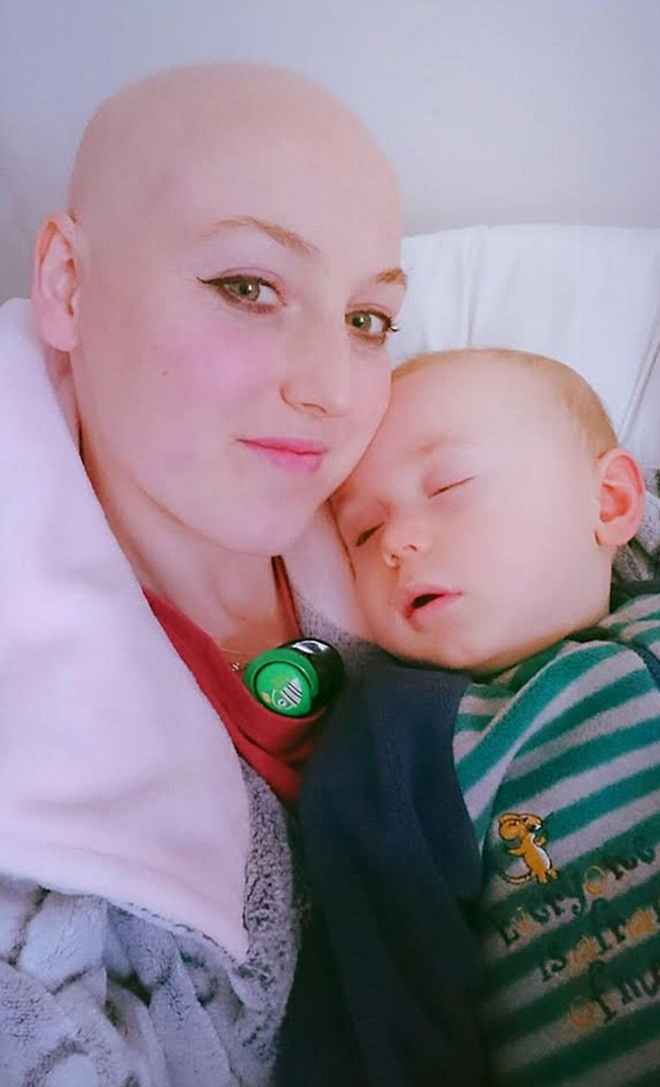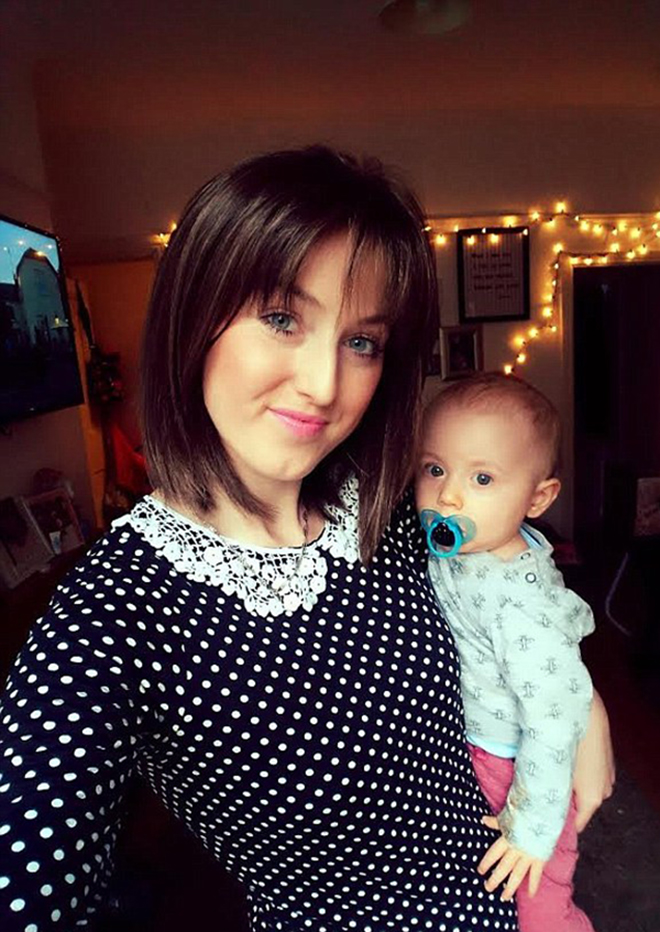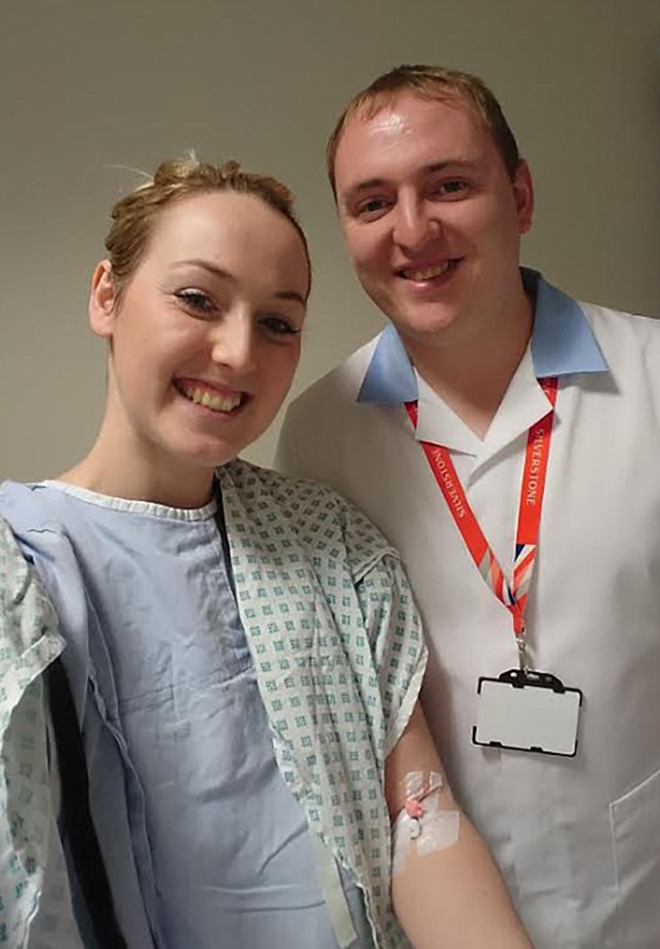When baby Teddy began rejecting just her right breast, mom Sarah Boyle suspected more than just fussiness.As moms our most important job is to protect and keep our kiddies safe; no matter their age. What we don’t expect is for a tiny bundle who can’t even walk to become Super Baby and save his mom’s life. But that is exactly what Sarah Boyle, a 26-year-old mom from England, claims her son Teddy did when he started changing his feeding habits.

Read more:
After breast cancer: A fresh start for your body and your life
Boyle explains that as a young baby Teddy was breastfeeding well, when suddenly at six months he “became very distressed” every time she offered him her right breast. She persevered in trying different positions but Boyle found “he became very unhappy and even hit out.” His reaction had an emotional impact on her: “For an eight-month baby to push his mother away was really heartbreaking.”

But Boyle, who’d been diagnosed with a harmless benign cyst in the same breast back in 2013, took her baby’s rejection as a warning. Doctors had previously reassured her that the cyst was nothing to be worried about and that she didn’t need to be re-scanned. However, Teddy’s behavior rang serious alarm bells considering her past. Suddenly she was more breast aware and something wasn’t right.

Read more:
Learn the ABCDE method for detecting cancerous moles
She started to notice her breast was changing shape and eventually that the cyst had become painful and a bit more rigid. So she went back to the doctors for another scan. That appointment led to a biopsy, which confirmed that Boyle had grade two triple negative breast cancer.
Facing down a devastating diagnosis, Boyle is now halfway through chemotherapy and says that Teddy is acting as her mini superhero once more, “by getting me through the rough times,” along with her husband and the rest of her family.

We all know of that special bond a mom feels when nursing her infant, but in this case it seems to have gone a little further; proving to be life-saving in a very tangible way. Boyle maintains, “Nobody can say for certain whether it was Teddy, but I know that if it wasn’t for him then this time next year it could’ve been completely different if I’d listened to doctors, but instead I listened to Teddy.”
Of course, this story highlights the importance of listening to our bodies at all stages, but it’s also a moment to simply marvel at the thought of a young baby who helped diagnose his mom’s cancer.
What the doctors have to say
Within the medical profession there has been no clear indication that this type of feeding rejection is a sign of breast cancer. Dr Jasmine Just, a health information officer at Cancer Research UK, explains that there was “no good evidence that difficulties breastfeeding are likely to be caused by breast cancer or that the disease changes breast milk so that a baby might not want to feed.”
However, a clinical nurse specialist at Breast Cancer Care, Catherine Priestly, explains that a “small number of women” had found their baby had rejected feeding from their breast before they were diagnosed. This happened to be the case of Shakti Dalal who was reported in 2015, of detecting breast cancer thanks to her daughter Layla’s persistent refusal to feed from one breast.
As Emily Cohen-Moreira, a certified lactation counselor, and founder of Lucy the Laborer, explained to us: “a baby’s sudden total refusal of one breast warrants an assessment by a breast specialist.” This is backed up by Priestly who believes “while there are many reasons why a baby may stop feeding, getting any new breast changes checked out must be top of the list.”
Cohen-Moreira clarifies, however, that there are cases when babies only ever feed from one side: “So I had a client who nurses her first two children only on one side, but this was the case basically from birth. Her third child nursed from both breasts.” So in these sorts of cases there is not the same cause for alarm, it could just be a baby having a preference from birth—who knew newborns could be so picky?!

In sharing her story Boyle says she wants “other women to be aware of any lumps in their breasts and to always get them checked out.” So please think of sharing her tale with the women in your life, whether they’re pregnant, nursing or just being their fabulous selves. As Priestly reminds us: “We found a tenth of younger women diagnosed with breast cancer are pregnant or breastfeeding when they first notice their breast symptom.” Because, you never know, there could be other Super Babies out there waiting to help save their mothers!








